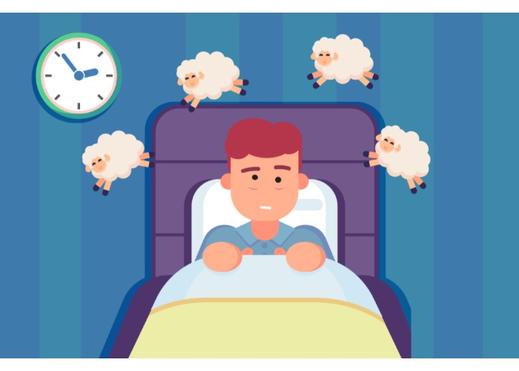What to do if you are Having Sleeping Problems?
Aug 13, 21

Do you have trouble sleeping or feel tired or sleepy when you wake up during the day? When you just want to sleep, your mind can race and your body can just feel so uneasy and turn back-and-forth. It is essential to maintain your overall health and mental health. Good sleep for seven hours or more every night stimulates the body, but it can also help remove toxins from the brain and give your brain a complete rest. It can improve your mental alertness, decision-making, and Insomnia through medication and non-pharmacological therapies, such as cognitive-behavioural therapy and lifestyle changes. There are many steps you can take to change your behaviour, lifestyle and help yourself fall asleep. If you have a sleep disorder or receiving the required sleep apnea treatment in Delhi, please try to do the following:
Get up at the Same Time Every Day

It may be easy for you to sleep really late on weekends, especially if you do not sleep well. However, if you suffer from insomnia, you should get up at the same time every day to train your body to wake up at a specific time.
Go to Sleep Whenever You Wake up at Night

Whether you have a sleep disorder or not, it is normal to wake up briefly at night. If you have trouble falling asleep, focus on breathing, meditate or practice another relaxation technique. Pay attention to anything that bothers you and decide to postpone the problem until the next day, where you can resolve the problem with a clear mind. Just go back to sleep if, whenever, you wake up during the night.
Improve Your Daily Habits

No matter what sleep problems you have sticking to a consistent sleep schedule, exercising regularly, limiting your intake of caffeine, alcohol, and nicotine will improve long-term sleeping habits through stress management.
Mindfulness and Meditation

It focuses on slow, steady breathing and making you sleep like a sheep. Reduced anxiety and introspection, has been found to have great health benefits, including the ability to help reduce insomnia.
Controlled Breathing

A series of slow, deep breaths in controlled manner can create a sense of calmness. It is believed that this technique (also known as pranayama breathing) can relieve stress on the nervous system by reducing stimulation and prepare the brain for sleep.
Minimize Stress Before Bed

It is difficult to fall asleep, and the longer you stay awake, the worse it will get. Soon, you will unknowingly begin to associate your bed with discomfort rather than comfort. The most important thing is to get rid of the negative association with your sleep space by forming healthy habits before going to bed. Our Insomnia Therapist in Delhi provides a lot of advice on sleep habits development before going to bed at the sleep clinic.
Exercise Regularly

Regular exercise can improve sleep quality and time. However, exercise before bedtime may be irritating and should be avoided. Try not to exercise at least three hours before going to bed.
Reduce Alcohol and Stimulants such as Nicotine and Caffeine
Caffeine intake may last for several hours, possibly as long as 24 hours, so it is likely to interfere with your sleep schedule. Caffeine not only makes it difficult for you to fall asleep, but it also causes you to get up often. Alcohol and Nicotine will calm you down for the first few hours after consumption, but then these may cause frequent awakenings and lead to an uncomfortable sleep. If you are taking medications that have a stimulating effect, such as congestives or asthma inhalants, please consult your doctor for the best time to take to minimize the impact on sleep.


